Frequent persons on Paraguay's street signs
countries
130 names / 513 streets
Francisco Solano López
 26
Francisco Solano López Carrillo was a Paraguayan military officer, politician and statesman who served as President of Paraguay between 1862 and 1870, of which he served mostly during the Paraguayan...
26
Francisco Solano López Carrillo was a Paraguayan military officer, politician and statesman who served as President of Paraguay between 1862 and 1870, of which he served mostly during the Paraguayan...
José Félix Estigarribia
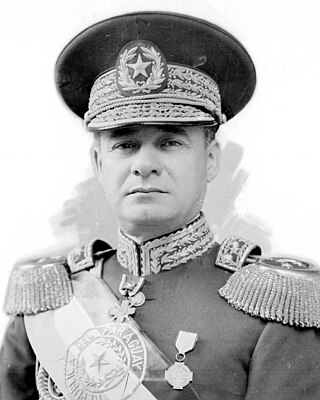 23
José Félix Estigarribia Insaurralde was a Paraguayan military officer and politician who served as the 34th President of Paraguay from 1939 until his death in a plane crash on September 7, 1940. He...
23
José Félix Estigarribia Insaurralde was a Paraguayan military officer and politician who served as the 34th President of Paraguay from 1939 until his death in a plane crash on September 7, 1940. He...
José de San Martín
 20
José Francisco de San Martín y Matorras, nicknamed "the Liberator of Argentina, Chile and Peru", was an Argentine general and the primary leader of the southern and central parts of South America's...
20
José Francisco de San Martín y Matorras, nicknamed "the Liberator of Argentina, Chile and Peru", was an Argentine general and the primary leader of the southern and central parts of South America's...
Juan Perón
 12
Juan Domingo Perón was an Argentine lieutenant general and politician who served as the 35th President of Argentina from 1946 to his overthrow in 1955, and again as the 45th President from October...
12
Juan Domingo Perón was an Argentine lieutenant general and politician who served as the 35th President of Argentina from 1946 to his overthrow in 1955, and again as the 45th President from October...
Bernardino Caballero
 12
Bernardino Caballero de Añazco Melgarejo y Genes was a Paraguayan military officer and politician, serving as a General during the Paraguayan War and later as President of Paraguay between September...
12
Bernardino Caballero de Añazco Melgarejo y Genes was a Paraguayan military officer and politician, serving as a General during the Paraguayan War and later as President of Paraguay between September...
Carlos Antonio López
 11
Carlos Antonio López Ynsfrán was leader of Paraguay from 1841 to 1862.
11
Carlos Antonio López Ynsfrán was leader of Paraguay from 1841 to 1862.
Roque González y de Santa Cruz
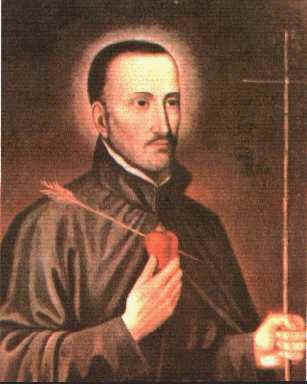 11
Roque González de Santa Cruz, SJ was a Jesuit priest who was the first missionary among the Guarani people in Paraguay. He is honored as a martyr and saint by the Catholic Church.
11
Roque González de Santa Cruz, SJ was a Jesuit priest who was the first missionary among the Guarani people in Paraguay. He is honored as a martyr and saint by the Catholic Church.
Mary, mother of Jesus
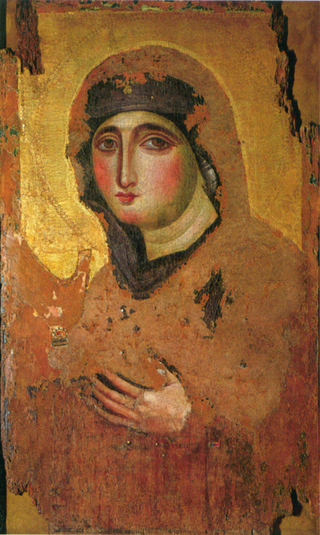 10
Mary was a first-century Jewish woman of Nazareth, the wife of Joseph and the mother of Jesus. She is a central figure of Christianity, venerated under various titles such as virgin or queen, many of...
10
Mary was a first-century Jewish woman of Nazareth, the wife of Joseph and the mother of Jesus. She is a central figure of Christianity, venerated under various titles such as virgin or queen, many of...
Juan Bautista Alberdi
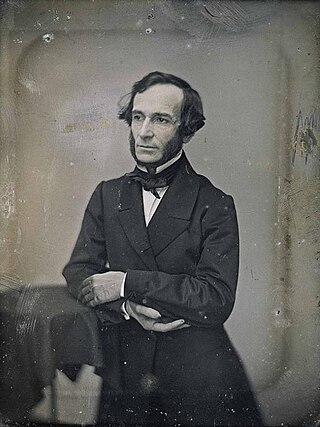 8
Juan Bautista Alberdi was an Argentine political theorist and diplomat. Although he lived most of his life in exile in Montevideo, Uruguay and in Chile, he influenced the content of the Constitution...
8
Juan Bautista Alberdi was an Argentine political theorist and diplomat. Although he lived most of his life in exile in Montevideo, Uruguay and in Chile, he influenced the content of the Constitution...
Hipólito Yrigoyen
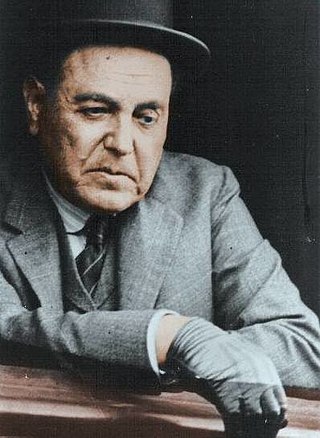 8
Juan Hipólito del Sagrado Corazón de Jesús Yrigoyen was an Argentine politician of the Radical Civic Union and two-time President of Argentina, who served his first term from 1916 to 1922 and his...
8
Juan Hipólito del Sagrado Corazón de Jesús Yrigoyen was an Argentine politician of the Radical Civic Union and two-time President of Argentina, who served his first term from 1916 to 1922 and his...
José E. Díaz
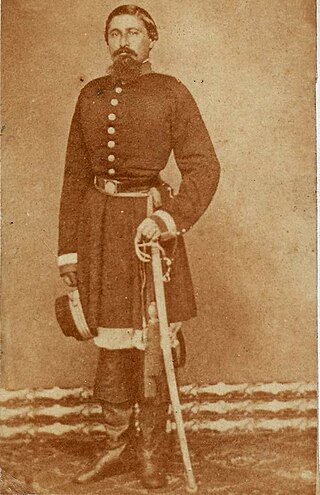 7
José Eduvigis Díaz Vera was a Paraguayan general. Díaz was born in the town of Cerro Verá east of Pirayú in the department of Paraguarí. His parents were Juan Andrés Díaz and Dolores Vera.
7
José Eduvigis Díaz Vera was a Paraguayan general. Díaz was born in the town of Cerro Verá east of Pirayú in the department of Paraguarí. His parents were Juan Andrés Díaz and Dolores Vera.
Juan Bautista Cabral
 7
Juan Bautista Cabral was an Argentine soldier, of Zambo origin, of the Regiment of Mounted Grenadiers who died in the Battle of San Lorenzo, while he was aiding then Colonel Don José de San Martín,...
7
Juan Bautista Cabral was an Argentine soldier, of Zambo origin, of the Regiment of Mounted Grenadiers who died in the Battle of San Lorenzo, while he was aiding then Colonel Don José de San Martín,...
Christopher Columbus
 6
Christopher Columbus was an Italian explorer and navigator from the Republic of Genoa who completed four Spanish-based voyages across the Atlantic Ocean sponsored by the Catholic Monarchs, opening...
6
Christopher Columbus was an Italian explorer and navigator from the Republic of Genoa who completed four Spanish-based voyages across the Atlantic Ocean sponsored by the Catholic Monarchs, opening...
Félix de Azara
 6
Félix Manuel de Azara y Perera was a Spanish military officer, naturalist, and engineer.
6
Félix Manuel de Azara y Perera was a Spanish military officer, naturalist, and engineer.
Bartolomé Mitre
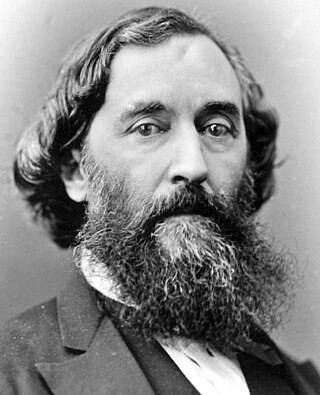 6
Bartolomé Mitre Martínez was an Argentine statesman, soldier and author. He was President of Argentina from 1862 to 1868 and the first president of unified Argentina.
6
Bartolomé Mitre Martínez was an Argentine statesman, soldier and author. He was President of Argentina from 1862 to 1868 and the first president of unified Argentina.
Andrés Guazurary
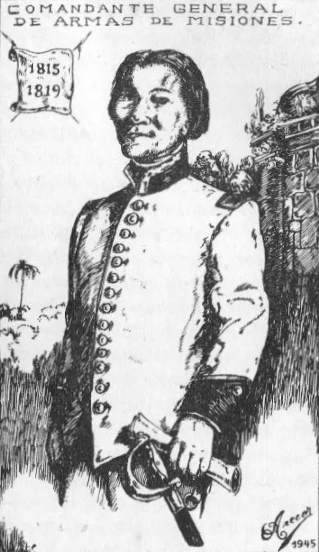 6
Andrés Guaçurary or Andrés Guazurarí, popularly known as Andresito was a caudillo of the province of Misiones, present-day Argentina, being governor of said province between 1811 and 1822. He was one...
6
Andrés Guaçurary or Andrés Guazurarí, popularly known as Andresito was a caudillo of the province of Misiones, present-day Argentina, being governor of said province between 1811 and 1822. He was one...
José Gaspar Rodríguez de Francia
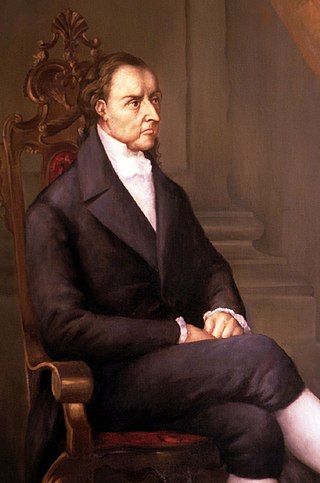 6
José Gaspar Rodríguez de Francia y Velasco was a Paraguayan lawyer and politician, and the first dictator (1814–1840) of Paraguay following its 1811 independence from the Spanish Viceroyalty of the...
6
José Gaspar Rodríguez de Francia y Velasco was a Paraguayan lawyer and politician, and the first dictator (1814–1840) of Paraguay following its 1811 independence from the Spanish Viceroyalty of the...
Mariano Moreno
 6
Mariano Moreno was an Argentine lawyer, journalist, and politician. He played a decisive role in the Primera Junta, the first national government of Argentina, created after the May Revolution.
6
Mariano Moreno was an Argentine lawyer, journalist, and politician. He played a decisive role in the Primera Junta, the first national government of Argentina, created after the May Revolution.
Facundo Quiroga
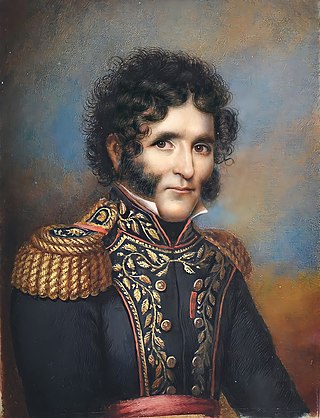 6
Juan Facundo Quiroga was an Argentine caudillo who supported federalism at the time when the country was still in formation.
6
Juan Facundo Quiroga was an Argentine caudillo who supported federalism at the time when the country was still in formation.
Pedro Juan Caballero (politician)
 6
Pedro Juan Caballero was a leading figure of Paraguayan independence. He was born in Tobatí, a town located Cordillera Department of Paraguay which was then part of the Spanish Viceroyalty of the Río...
6
Pedro Juan Caballero was a leading figure of Paraguayan independence. He was born in Tobatí, a town located Cordillera Department of Paraguay which was then part of the Spanish Viceroyalty of the Río...
Fulgencio Yegros
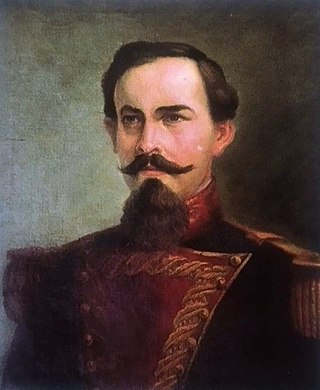 6
Fulgencio Yegros y Franco de Torres was Paraguayan soldier and first head of state of independent Paraguay. The town of Yegros is named in his honor.
6
Fulgencio Yegros y Franco de Torres was Paraguayan soldier and first head of state of independent Paraguay. The town of Yegros is named in his honor.
Eusebio Ayala
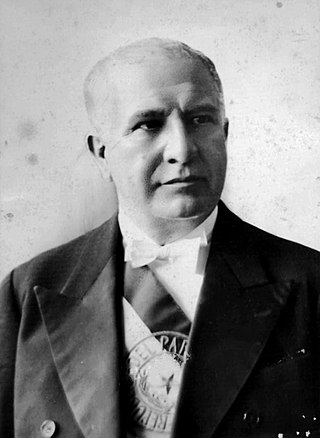 6
Eusebio Ayala Bordenave was a Paraguayan politician who served as the 28th President of Paraguay from 7 November 1921 to 12 April 1923 and again from 15 August 1932 to 17 February 1936.
6
Eusebio Ayala Bordenave was a Paraguayan politician who served as the 28th President of Paraguay from 7 November 1921 to 12 April 1923 and again from 15 August 1932 to 17 February 1936.
Saint Joseph
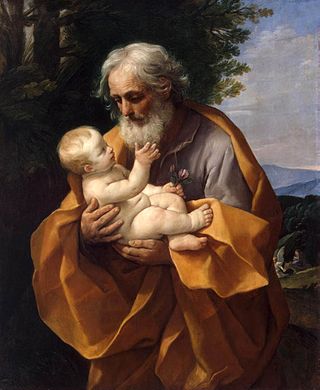 6
Joseph was a 1st-century Jewish man of Nazareth who, according to the canonical Gospels, was married to Mary, the mother of Jesus, and was the legal father of Jesus.
6
Joseph was a 1st-century Jewish man of Nazareth who, according to the canonical Gospels, was married to Mary, the mother of Jesus, and was the legal father of Jesus.
John the Baptist
 6
John the Baptist was a Jewish preacher active in the area of the Jordan River in the early 1st century AD. He is also known as Saint John the Forerunner in Eastern Orthodoxy, John the Immerser in...
6
John the Baptist was a Jewish preacher active in the area of the Jordan River in the early 1st century AD. He is also known as Saint John the Forerunner in Eastern Orthodoxy, John the Immerser in...
Blas Garay
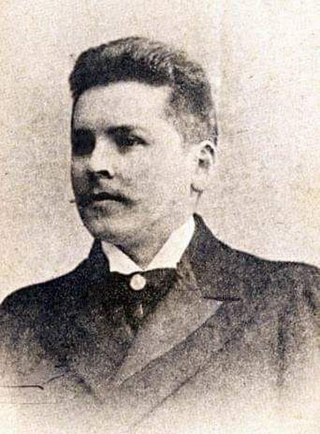 6
Blas Manuel Garay Argaña fue un escritor y periodista paraguayo.
6
Blas Manuel Garay Argaña fue un escritor y periodista paraguayo.
Anthony of Padua
 5
Anthony of Padua, OFM or Anthony of Lisbon was a Portuguese Catholic priest and friar of the Franciscan Order.
5
Anthony of Padua, OFM or Anthony of Lisbon was a Portuguese Catholic priest and friar of the Franciscan Order.
Louis Bertrand (saint)
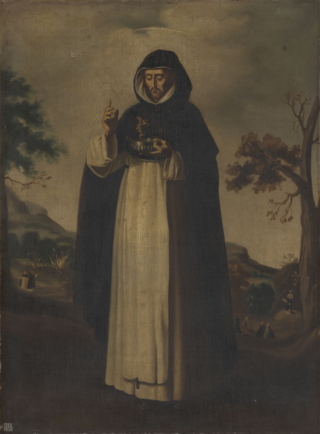 5
Louis Bertrand, OP was a Spanish Dominican friar who preached in South America during the 16th century, and is known as the "Apostle to the Americas". He is venerated as a saint by the Catholic...
5
Louis Bertrand, OP was a Spanish Dominican friar who preached in South America during the 16th century, and is known as the "Apostle to the Americas". He is venerated as a saint by the Catholic...
Martín Miguel de Güemes
 5
Martín Miguel de Güemes was a military leader and popular caudillo who defended northwestern Argentina from the Spanish royalist army during the Argentine War of Independence.
5
Martín Miguel de Güemes was a military leader and popular caudillo who defended northwestern Argentina from the Spanish royalist army during the Argentine War of Independence.
Manuel Belgrano
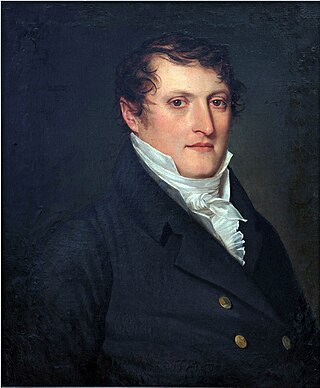 5
Manuel José Joaquín del Corazón de Jesús Belgrano y González, usually referred to as Manuel Belgrano, was an Argentine public servant, economist, lawyer, politician, journalist, and military leader....
5
Manuel José Joaquín del Corazón de Jesús Belgrano y González, usually referred to as Manuel Belgrano, was an Argentine public servant, economist, lawyer, politician, journalist, and military leader....
Horacio Quiroga
 5
Horacio Silvestre Quiroga Forteza was a Uruguayan playwright, poet, and short story writer.
5
Horacio Silvestre Quiroga Forteza was a Uruguayan playwright, poet, and short story writer.
Justo José de Urquiza
 5
Justo José de Urquiza y García was an Argentine general and politician who served as president of the Argentine Confederation from 1854 to 1860.
5
Justo José de Urquiza y García was an Argentine general and politician who served as president of the Argentine Confederation from 1854 to 1860.
Eva Perón
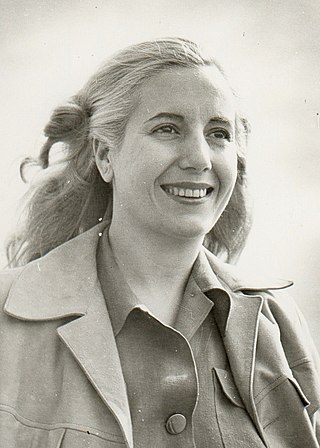 5
María Eva Duarte de Perón, better known as just Eva Perón or by the nickname Evita, was an Argentine politician, activist, actress, and philanthropist who served as First Lady of Argentina from June...
5
María Eva Duarte de Perón, better known as just Eva Perón or by the nickname Evita, was an Argentine politician, activist, actress, and philanthropist who served as First Lady of Argentina from June...
Juan E. O'Leary
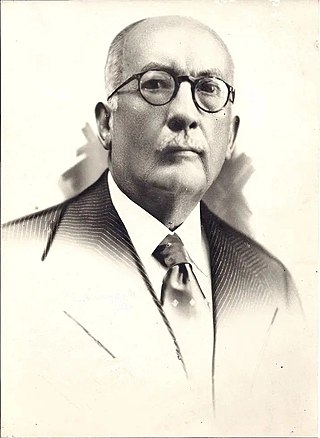 5
Juan Emiliano O'Leary Urdapilleta fue un periodista, historiador, político, poeta y ensayista paraguayo. Fue hijo del matrimonio de Juan Emilio O'Leary Costa y María Dolores Francisca Urdapilleta...
5
Juan Emiliano O'Leary Urdapilleta fue un periodista, historiador, político, poeta y ensayista paraguayo. Fue hijo del matrimonio de Juan Emilio O'Leary Costa y María Dolores Francisca Urdapilleta...
José Asunción Flores
 5
José Asunción Flores was a Paraguayan composer and creator of the Guarania music genre.
5
José Asunción Flores was a Paraguayan composer and creator of the Guarania music genre.
Aimé Bonpland
 4
Aimé Jacques Alexandre Bonpland was a French explorer and botanist who traveled with Alexander von Humboldt in Latin America from 1799 to 1804. He co-authored volumes of the scientific results of...
4
Aimé Jacques Alexandre Bonpland was a French explorer and botanist who traveled with Alexander von Humboldt in Latin America from 1799 to 1804. He co-authored volumes of the scientific results of...
Máximo Santos
 4
Máximo Benito Santos Barbosa was a Uruguayan political and military figure.
4
Máximo Benito Santos Barbosa was a Uruguayan political and military figure.
Carlos Pellegrini
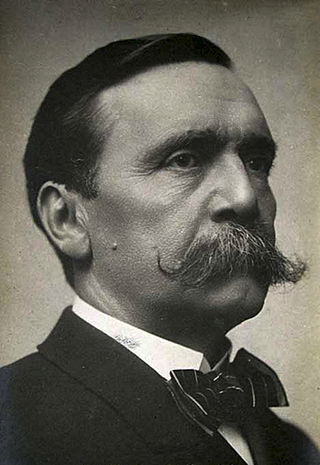 4
Carlos Enrique José Pellegrini Bevans was Vice President of Argentina and became President of Argentina from August 6, 1890 to October 12, 1892, upon Miguel Ángel Juárez Celman's resignation.
4
Carlos Enrique José Pellegrini Bevans was Vice President of Argentina and became President of Argentina from August 6, 1890 to October 12, 1892, upon Miguel Ángel Juárez Celman's resignation.
Saint Lawrence
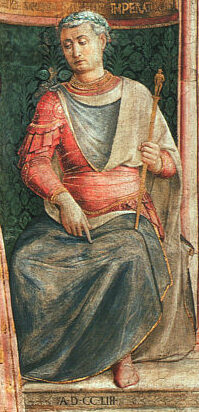 4
Saint Lawrence or Laurence was one of the seven deacons of the city of Rome under Pope Sixtus II who were martyred in the persecution of the Christians that the Roman Emperor Valerian ordered in 258.
4
Saint Lawrence or Laurence was one of the seven deacons of the city of Rome under Pope Sixtus II who were martyred in the persecution of the Christians that the Roman Emperor Valerian ordered in 258.
Luis Irrazábal
 4
The Colonel Luis Irrazábal Barboza was born in Encarnación, in Itapúa Department, Paraguay, on August 8, 1891, and died on March 16, 1958, in Asunción, capital of Paraguay.
4
The Colonel Luis Irrazábal Barboza was born in Encarnación, in Itapúa Department, Paraguay, on August 8, 1891, and died on March 16, 1958, in Asunción, capital of Paraguay.
Florentino Ameghino
 4
Florentino Ameghino was an Argentine naturalist, paleontologist, anthropologist and zoologist, whose fossil discoveries on the Argentine Pampas, especially on Patagonia, rank with those made in the...
4
Florentino Ameghino was an Argentine naturalist, paleontologist, anthropologist and zoologist, whose fossil discoveries on the Argentine Pampas, especially on Patagonia, rank with those made in the...
Mark the Evangelist
 4
Mark the Evangelist also known as John Mark or Saint Mark, is the person who is traditionally ascribed to be the author of the Gospel of Mark. Modern Bible scholars have concluded that the Gospel of...
4
Mark the Evangelist also known as John Mark or Saint Mark, is the person who is traditionally ascribed to be the author of the Gospel of Mark. Modern Bible scholars have concluded that the Gospel of...
Hernando Arias de Saavedra
 4
Hernando Arias de Saavedra, commonly known as Hernandarias, was a soldier and politician of criollo ancestry. He was the first person born in the Americas to become a governor of a European colony in...
4
Hernando Arias de Saavedra, commonly known as Hernandarias, was a soldier and politician of criollo ancestry. He was the first person born in the Americas to become a governor of a European colony in...
Juan Manuel de Rosas
 4
Juan Manuel José Domingo Ortiz de Rosas, nicknamed "Restorer of the Laws", was an Argentine politician and army officer who ruled Buenos Aires Province and briefly the Argentine Confederation....
4
Juan Manuel José Domingo Ortiz de Rosas, nicknamed "Restorer of the Laws", was an Argentine politician and army officer who ruled Buenos Aires Province and briefly the Argentine Confederation....
Simón Bolívar
 3
Simón José Antonio de la Santísima Trinidad Bolívar Palacios Ponte y Blanco was a Venezuelan military and political leader who led what are currently the countries of Colombia, Venezuela, Ecuador,...
3
Simón José Antonio de la Santísima Trinidad Bolívar Palacios Ponte y Blanco was a Venezuelan military and political leader who led what are currently the countries of Colombia, Venezuela, Ecuador,...
Francisco Narciso de Laprida
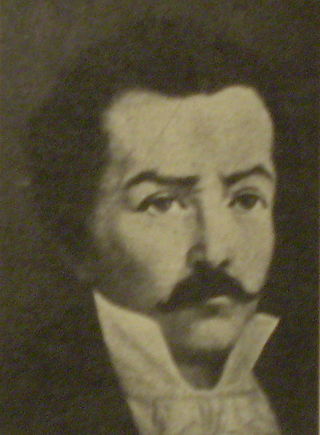 3
Francisco Narciso de Laprida was an Argentine lawyer and politician. He was a representative for San Juan at the Congress of Tucumán, and its president on July 9, 1816, when the Declaration of...
3
Francisco Narciso de Laprida was an Argentine lawyer and politician. He was a representative for San Juan at the Congress of Tucumán, and its president on July 9, 1816, when the Declaration of...
Giuseppe Garibaldi
 3
Giuseppe Maria Garibaldi was an Italian general, patriot, revolutionary and republican. He contributed to Italian unification (Risorgimento) and the creation of the Kingdom of Italy. He is considered...
3
Giuseppe Maria Garibaldi was an Italian general, patriot, revolutionary and republican. He contributed to Italian unification (Risorgimento) and the creation of the Kingdom of Italy. He is considered...
Vincent Ferrer
 3
Vincent Ferrer, OP was a Valencian Dominican friar and preacher, who gained acclaim as a missionary and a logician. He is honored as a saint of the Catholic Church and other churches of Catholic...
3
Vincent Ferrer, OP was a Valencian Dominican friar and preacher, who gained acclaim as a missionary and a logician. He is honored as a saint of the Catholic Church and other churches of Catholic...
Vicente López y Planes
 3
Alejandro Vicente López y Planes was an Argentine writer and politician who acted as interim President of Argentina from July 7 to August 18, 1827. He also wrote the lyrics of the Argentine National...
3
Alejandro Vicente López y Planes was an Argentine writer and politician who acted as interim President of Argentina from July 7 to August 18, 1827. He also wrote the lyrics of the Argentine National...
Andrés Barbero
 3
Andrés Barbero was a Paraguayan scientist and botanist.
3
Andrés Barbero was a Paraguayan scientist and botanist.
Roque Sáenz Peña
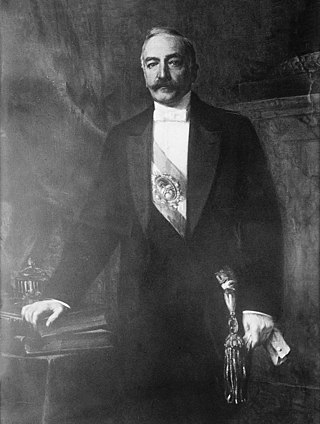 3
Roque José Antonio del Sagrado Corazón de Jesús Sáenz Peña Lahitte was an Argentine politician and lawyer who served as President of Argentina from 12 October 1910 to his death in office on 9 August...
3
Roque José Antonio del Sagrado Corazón de Jesús Sáenz Peña Lahitte was an Argentine politician and lawyer who served as President of Argentina from 12 October 1910 to his death in office on 9 August...
Lambaré (chieftain)
 3
Lambaré, also transliterated as Lampere, was a purported cacique of the Guaraní people who fought against and subsequently reconciled with Spanish conquistadors in what is now Paraguay in the 16th...
3
Lambaré, also transliterated as Lampere, was a purported cacique of the Guaraní people who fought against and subsequently reconciled with Spanish conquistadors in what is now Paraguay in the 16th...
José Gervasio Artigas
 3
José Gervasio Artigas Arnal was a soldier and statesman who is regarded as a national hero in Uruguay and the father of Uruguayan nationhood.
3
José Gervasio Artigas Arnal was a soldier and statesman who is regarded as a national hero in Uruguay and the father of Uruguayan nationhood.
Ignatius of Loyola
 3
Ignatius of Loyola, venerated as Saint Ignatius of Loyola, was a Spanish Catholic priest and theologian, who, with six companions, founded the religious order of the Society of Jesus (Jesuits), and...
3
Ignatius of Loyola, venerated as Saint Ignatius of Loyola, was a Spanish Catholic priest and theologian, who, with six companions, founded the religious order of the Society of Jesus (Jesuits), and...
William Brown (admiral)
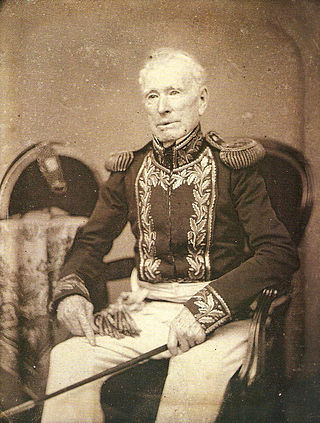 3
William Brown was an Irish sailor, merchant, and naval commander who served in the Argentine Navy during the wars of the early 19th century. Brown's successes in the Argentine War of Independence,...
3
William Brown was an Irish sailor, merchant, and naval commander who served in the Argentine Navy during the wars of the early 19th century. Brown's successes in the Argentine War of Independence,...
Ricardo Balbín
 3
Ricardo Balbín was an Argentine lawyer and politician, and one of the most important figures of the centrist Radical Civic Union (UCR), for which he was the presidential nominee four times: in 1951,...
3
Ricardo Balbín was an Argentine lawyer and politician, and one of the most important figures of the centrist Radical Civic Union (UCR), for which he was the presidential nominee four times: in 1951,...
Francisco Ramírez (governor)
 3
Francisco Ramírez, also known as "Pancho" Ramírez as well as "El Supremo Entrerriano" (1786–1821), was an Argentine governor of Entre Ríos during the Argentine War of Independence.
3
Francisco Ramírez, also known as "Pancho" Ramírez as well as "El Supremo Entrerriano" (1786–1821), was an Argentine governor of Entre Ríos during the Argentine War of Independence.
Silvio Pettirossi
 3
Silvio Pettirossi Pereira was a Paraguayan airplane pilot and aviation pioneer.
3
Silvio Pettirossi Pereira was a Paraguayan airplane pilot and aviation pioneer.
Jorge Newbery
 3
Jorge Alejandro Newbery Malagarie was an Argentine aviator, civil servant, engineer and scientist. He died in an airplane crash on 1 March 1914, at the age of 38.
3
Jorge Alejandro Newbery Malagarie was an Argentine aviator, civil servant, engineer and scientist. He died in an airplane crash on 1 March 1914, at the age of 38.
Eligio Ayala
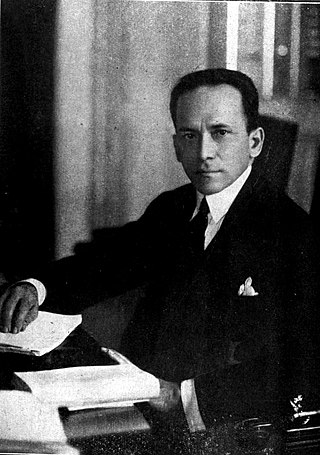 3
José Eligio Ayala was President of Paraguay from 12 April 1923 to 17 March 1924 and again from 15 August 1924 until 15 August 1928. He was a member of the Liberal Party.
3
José Eligio Ayala was President of Paraguay from 12 April 1923 to 17 March 1924 and again from 15 August 1924 until 15 August 1928. He was a member of the Liberal Party.
Saint Blaise
 3
Blaise of Sebaste was a physician and bishop of Sebastea in historical Lesser Armenia who is venerated as a Christian saint and martyr. He is counted as one of the Fourteen Holy Helpers.
3
Blaise of Sebaste was a physician and bishop of Sebastea in historical Lesser Armenia who is venerated as a Christian saint and martyr. He is counted as one of the Fourteen Holy Helpers.
Saturio Ríos
 3
Saturio Cándido Ríos fue un pintor, inventor y telegrafista paraguayo. Tuvo una destacada actuación como telegrafista durante la Guerra de la Triple Alianza.
3
Saturio Cándido Ríos fue un pintor, inventor y telegrafista paraguayo. Tuvo una destacada actuación como telegrafista durante la Guerra de la Triple Alianza.
Eugenio A. Garay
 3
Eugenio Alejandrino Garay Argaña fue un periodista y militar paraguayo de destacada actuación en la Guerra del Chaco.
3
Eugenio Alejandrino Garay Argaña fue un periodista y militar paraguayo de destacada actuación en la Guerra del Chaco.
Bernardo O'Higgins
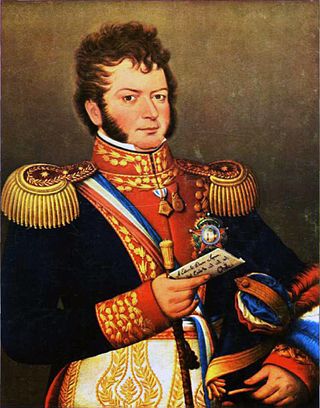 3
Bernardo O'Higgins Riquelme was a Chilean independence leader who freed Chile from Spanish rule in the Chilean War of Independence. He was a wealthy landowner of Basque-Spanish and Irish ancestry....
3
Bernardo O'Higgins Riquelme was a Chilean independence leader who freed Chile from Spanish rule in the Chilean War of Independence. He was a wealthy landowner of Basque-Spanish and Irish ancestry....
Saint Peter
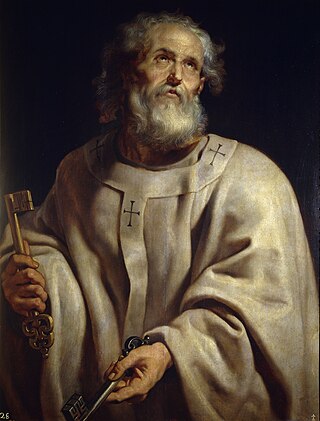 3
Saint Peter, also known as Peter the Apostle, Simon Peter, Simeon, Simon, or Cephas, was one of the Twelve Apostles of Jesus Christ and one of the first leaders of the early Christian Church. He...
3
Saint Peter, also known as Peter the Apostle, Simon Peter, Simeon, Simon, or Cephas, was one of the Twelve Apostles of Jesus Christ and one of the first leaders of the early Christian Church. He...
Teodoro S. Mongelós
 3
Teodoro Salvador Mongelós, más conocido como Teodoro S. Mongelós, fue un poeta paraguayo. Es uno de los más importantes autores -junto a Manuel Ortiz Guerrero y Félix Fernández- de letras de...
3
Teodoro Salvador Mongelós, más conocido como Teodoro S. Mongelós, fue un poeta paraguayo. Es uno de los más importantes autores -junto a Manuel Ortiz Guerrero y Félix Fernández- de letras de...
Teresa Urrea
 3
Teresa Urrea, often referred to as Teresita and also known as Santa Teresa or La Santa de Cábora among the Mayo, was a Mexican mystic, folk healer, and revolutionary insurgent.
3
Teresa Urrea, often referred to as Teresita and also known as Santa Teresa or La Santa de Cábora among the Mayo, was a Mexican mystic, folk healer, and revolutionary insurgent.
Benjamin Constant
 3
Henri-Benjamin Constant de Rebecque, or simply Benjamin Constant, was a Swiss political thinker, activist and writer on political theory and religion.
3
Henri-Benjamin Constant de Rebecque, or simply Benjamin Constant, was a Swiss political thinker, activist and writer on political theory and religion.
Eusebio Lillo
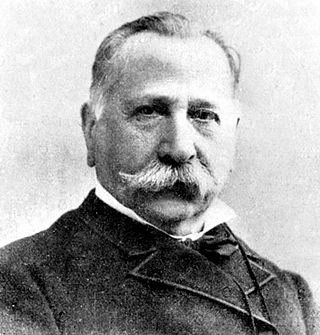 3
Eusebio Lillo Robles was a poet, journalist and politician. He is the author of the lyrics of the Chilean National Anthem.
3
Eusebio Lillo Robles was a poet, journalist and politician. He is the author of the lyrics of the Chilean National Anthem.
Saint George
 2
Saint George, also George of Lydda, was an early Christian martyr who is venerated as a saint in Christianity. According to tradition, he was a soldier in the Roman army. Of Cappadocian Greek origin,...
2
Saint George, also George of Lydda, was an early Christian martyr who is venerated as a saint in Christianity. According to tradition, he was a soldier in the Roman army. Of Cappadocian Greek origin,...
Drummer boy of Tacuarí
 2
Pedro Ríos (1798–1811), better known as the Tambor de Tacuarí was a boy soldier who participated as a drummer in Manuel Belgrano's expedition to Paraguay (1810–11). He was killed in action while...
2
Pedro Ríos (1798–1811), better known as the Tambor de Tacuarí was a boy soldier who participated as a drummer in Manuel Belgrano's expedition to Paraguay (1810–11). He was killed in action while...
Francisco de Haro
 2
Francisco de Haro was a Californio politician, soldier, and ranchero, who served as the 1st and 5th Alcalde of San Francisco. He notably commissioned the first land survey of San Francisco to Jean...
2
Francisco de Haro was a Californio politician, soldier, and ranchero, who served as the 1st and 5th Alcalde of San Francisco. He notably commissioned the first land survey of San Francisco to Jean...
Leandro N. Alem
 2
Leandro Nicéforo Alem was an Argentine politician, founder and leader of the Radical Civic Union. He was the uncle and political teacher of Hipólito Yrigoyen. He was also an active Freemason.
2
Leandro Nicéforo Alem was an Argentine politician, founder and leader of the Radical Civic Union. He was the uncle and political teacher of Hipólito Yrigoyen. He was also an active Freemason.
Julio Correa
 2
Julio Correa Myzkowsky was a Paraguayan poet in Guarani language.
2
Julio Correa Myzkowsky was a Paraguayan poet in Guarani language.
Tomás Romero Pereira
 2
Tomás Romero Pereira was a Paraguayan architect and politician who served as President of Paraguay from May to August of 1954. He was installed as president by Alfredo Stroessner after the coup of 4...
2
Tomás Romero Pereira was a Paraguayan architect and politician who served as President of Paraguay from May to August of 1954. He was installed as president by Alfredo Stroessner after the coup of 4...
Saint Roch
 2
Roch, also called Rock in English, was a Majorcan Catholic confessor whose death is commemorated on 16 August and 9 September in Italy; he was especially invoked against the plague. He has the...
2
Roch, also called Rock in English, was a Majorcan Catholic confessor whose death is commemorated on 16 August and 9 September in Italy; he was especially invoked against the plague. He has the...
Saint Anne
 2
According to apocrypha, as well as Christian and Islamic tradition, Saint Anne was the mother of Mary, the wife of Joachim and the maternal grandmother of Jesus. Mary's mother is not named in the...
2
According to apocrypha, as well as Christian and Islamic tradition, Saint Anne was the mother of Mary, the wife of Joachim and the maternal grandmother of Jesus. Mary's mother is not named in the...
Pope John Paul II
 2
Pope John Paul II was head of the Catholic Church and sovereign of the Vatican City State from 1978 until his death in 2005.
2
Pope John Paul II was head of the Catholic Church and sovereign of the Vatican City State from 1978 until his death in 2005.
Luis María Argaña
 2
Luis María del Corazón de Jesús Dionisio Argaña Ferraro was a Paraguayan politician and jurist. A prominent and influential member of the Colorado Party, he was a Supreme Court judge, unsuccessfully...
2
Luis María del Corazón de Jesús Dionisio Argaña Ferraro was a Paraguayan politician and jurist. A prominent and influential member of the Colorado Party, he was a Supreme Court judge, unsuccessfully...
Vicente Ignacio Iturbe
 2
Vicente Ignacio Iturbe Domínguez fue hijo de Antonio Iturbe y María del Carmen Domínguez.
2
Vicente Ignacio Iturbe Domínguez fue hijo de Antonio Iturbe y María del Carmen Domínguez.
Blas Parera
 2
Blas Parera Moret was a Spanish music composer and teacher. He lived his part of his life in Buenos Aires, Argentina.
2
Blas Parera Moret was a Spanish music composer and teacher. He lived his part of his life in Buenos Aires, Argentina.
Olegario Víctor Andrade
 2
Olegario Víctor Andrade (1839–1882) was an Argentine journalist, poet and politician, who was born in Brazil.
His daughter, Agustina Andrade, was also a poet.
2
Olegario Víctor Andrade (1839–1882) was an Argentine journalist, poet and politician, who was born in Brazil.
His daughter, Agustina Andrade, was also a poet.
Alicia Moreau de Justo
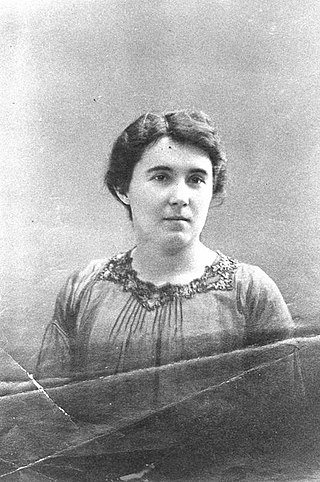 2
Alicia Moreau de Justo was an Argentine physician, politician, pacifist and human rights activist. She was a leading figure in feminism and socialism in Argentina. Since the beginning of the 20th...
2
Alicia Moreau de Justo was an Argentine physician, politician, pacifist and human rights activist. She was a leading figure in feminism and socialism in Argentina. Since the beginning of the 20th...
José Félix Bogado
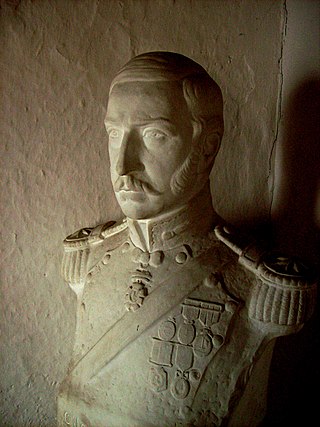 2
José Félix Bogado fue un militar de origen paraguayo, que tuvo extensa participación en la Guerra de Independencia de Argentina y brevemente en las luchas contra los indígenas y la Guerra Civil de su...
2
José Félix Bogado fue un militar de origen paraguayo, que tuvo extensa participación en la Guerra de Independencia de Argentina y brevemente en las luchas contra los indígenas y la Guerra Civil de su...
Ángel Vicente Peñaloza
 2
Ángel Vicente "Chacho" Peñaloza was a military officer and provincial leader prominent in both the history of La Rioja province and the Argentine civil wars that preceded national unity.
2
Ángel Vicente "Chacho" Peñaloza was a military officer and provincial leader prominent in both the history of La Rioja province and the Argentine civil wars that preceded national unity.
Néstor Kirchner
 2
Néstor Carlos Kirchner Ostoić was an Argentine lawyer and politician who served as the President of Argentina from 2003 to 2007. A member of the Justicialist Party, he previously served as Governor...
2
Néstor Carlos Kirchner Ostoić was an Argentine lawyer and politician who served as the President of Argentina from 2003 to 2007. A member of the Justicialist Party, he previously served as Governor...
Deodoro da Fonseca
 2
Manuel Deodoro da Fonseca was a Brazilian politician and military officer who served as the first president of Brazil. He was born in Alagoas in a military family, followed a military career, and...
2
Manuel Deodoro da Fonseca was a Brazilian politician and military officer who served as the first president of Brazil. He was born in Alagoas in a military family, followed a military career, and...
Carlos Culmey
 2
Carlos Culmey (Neuwied, 19 de junho de 1879 —, foi um engenheiro civil alemão responsável pela colonização de vários locais na Argentina e no Brasil.
2
Carlos Culmey (Neuwied, 19 de junho de 1879 —, foi um engenheiro civil alemão responsável pela colonização de vários locais na Argentina e no Brasil.
Juan José Paso
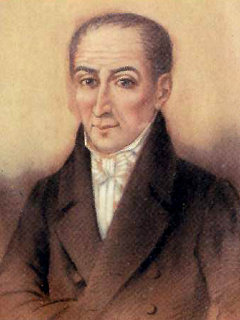 2
Juan José Esteban Paso, was an Argentine politician who participated in the events that started the Argentine War of Independence known as May Revolution of 1810.
2
Juan José Esteban Paso, was an Argentine politician who participated in the events that started the Argentine War of Independence known as May Revolution of 1810.
José de Antequera y Castro
 2
José de Antequera y Castro was a Panamanian lawyer and judge in the Viceroyalty of Peru who worked with the Real Audiencia of Charcas. He traveled to Paraguay to investigate allegations of corruption...
2
José de Antequera y Castro was a Panamanian lawyer and judge in the Viceroyalty of Peru who worked with the Real Audiencia of Charcas. He traveled to Paraguay to investigate allegations of corruption...
Santiago de Liniers, 1st Count of Buenos Aires
 2
Santiago Antonio María de Liniers y Bremond, 1st Count of Buenos Aires, KOM, OM was a Spanish military officer and a viceroy of the Viceroyalty of the Río de la Plata. Although born Jacques de...
2
Santiago Antonio María de Liniers y Bremond, 1st Count of Buenos Aires, KOM, OM was a Spanish military officer and a viceroy of the Viceroyalty of the Río de la Plata. Although born Jacques de...
Arturo Umberto Illia
 2
Arturo Umberto Illia was an Argentine politician and physician, who was President of Argentina from 12 October 1963, to 28 June 1966. He was a member of the centrist Radical Civic Union.
2
Arturo Umberto Illia was an Argentine politician and physician, who was President of Argentina from 12 October 1963, to 28 June 1966. He was a member of the centrist Radical Civic Union.
Michael (archangel)
 2
Michael, also called Saint Michael the Archangel, Archangel Michael and Saint Michael the Taxiarch is an archangel in Judaism, Christianity, Islam, and the Baha'i faith. The earliest surviving...
2
Michael, also called Saint Michael the Archangel, Archangel Michael and Saint Michael the Taxiarch is an archangel in Judaism, Christianity, Islam, and the Baha'i faith. The earliest surviving...
Juan de Ayolas
 2
Juan de Ayolas was a conquistador born in Briviesca who explored the watershed of the Río de la Plata for the Spanish Crown. He accompanied Pedro de Mendoza on his 1534 expedition to colonize the...
2
Juan de Ayolas was a conquistador born in Briviesca who explored the watershed of the Río de la Plata for the Spanish Crown. He accompanied Pedro de Mendoza on his 1534 expedition to colonize the...
Floriano Peixoto
 2
Floriano Vieira Peixoto, born in Ipioca, nicknamed the "Iron Marshal", was a Brazilian soldier and politician, a veteran of the Paraguayan War, and the second president of Brazil. He was the first...
2
Floriano Vieira Peixoto, born in Ipioca, nicknamed the "Iron Marshal", was a Brazilian soldier and politician, a veteran of the Paraguayan War, and the second president of Brazil. He was the first...
Manuel Franco
 2
Manuel Franco was President of Paraguay from August 15, 1916, to June 5, 1919.
2
Manuel Franco was President of Paraguay from August 15, 1916, to June 5, 1919.
José Berges
 2
José Timoteo de la Paz Berges Villaalta was a Paraguayan diplomat who served as the Minister of Foreign Affairs during the rule of Paraguayan dictator Francisco Solano López and the Paraguayan War.
2
José Timoteo de la Paz Berges Villaalta was a Paraguayan diplomat who served as the Minister of Foreign Affairs during the rule of Paraguayan dictator Francisco Solano López and the Paraguayan War.
Jorge Kemerer
 2
Jorge Kemerer fue un misionero argentino de la Congregación del Verbo Divino y obispo emérito de Posadas.
2
Jorge Kemerer fue un misionero argentino de la Congregación del Verbo Divino y obispo emérito de Posadas.
Domingo Faustino Sarmiento
 2
Domingo Faustino Sarmiento was an Argentine activist, intellectual, writer, statesman and President of Argentina. His writing spanned a wide range of genres and topics, from journalism to...
2
Domingo Faustino Sarmiento was an Argentine activist, intellectual, writer, statesman and President of Argentina. His writing spanned a wide range of genres and topics, from journalism to...
Manuel Ortiz Guerrero
 2
Manuel Ortiz Guerrero was a Paraguayan poet and musician.
2
Manuel Ortiz Guerrero was a Paraguayan poet and musician.
Juan de Salazar de Espinosa
 2
Juan de Salazar y Espinosa (1508–1560) was a Spanish explorer, founder of the Paraguayan city of Asunción. Born in the city of Espinosa de los Monteros in Burgos, Spain, not much is known about his...
2
Juan de Salazar y Espinosa (1508–1560) was a Spanish explorer, founder of the Paraguayan city of Asunción. Born in the city of Espinosa de los Monteros in Burgos, Spain, not much is known about his...
Julio Argentino Roca
 2
Alejo Julio Argentino Roca Paz was an army general and statesman who served as President of Argentina from 1880 to 1886 and from 1898 to 1904. Roca is the most important representative of the...
2
Alejo Julio Argentino Roca Paz was an army general and statesman who served as President of Argentina from 1880 to 1886 and from 1898 to 1904. Roca is the most important representative of the...
John Bosco
 2
John Melchior Bosco, SDB, popularly known as Don Bosco, was an Italian Catholic priest, educator and writer of the 19th century. While working in Turin, where the population suffered many of the ill...
2
John Melchior Bosco, SDB, popularly known as Don Bosco, was an Italian Catholic priest, educator and writer of the 19th century. While working in Turin, where the population suffered many of the ill...
Francisco Manuel Barroso, Baron of Amazonas
 2
Francisco Manuel Barroso, Baron of Amazonas was a Brazilian admiral of the Imperial Brazilian Navy.
2
Francisco Manuel Barroso, Baron of Amazonas was a Brazilian admiral of the Imperial Brazilian Navy.
Pedro Bruno Guggiari
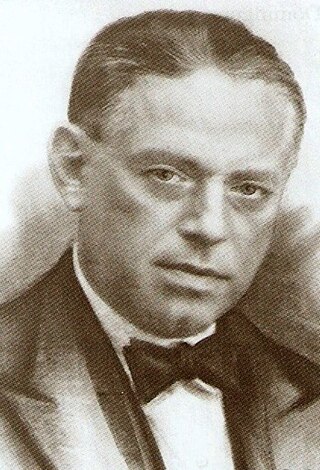 2
Pedro Bruno Guggiari (1885-1933) fue un importante político paraguayo durante la época conocida como la hegemonía liberal.
2
Pedro Bruno Guggiari (1885-1933) fue un importante político paraguayo durante la época conocida como la hegemonía liberal.
Juan Francisco López
 2
Juan Francisco López Lynch fue hijo primogénito de Elisa Alicia Lynch, y sexto del Mariscal Francisco Solano López, a quien acompañó en la Guerra de la Triple Alianza.
2
Juan Francisco López Lynch fue hijo primogénito de Elisa Alicia Lynch, y sexto del Mariscal Francisco Solano López, a quien acompañó en la Guerra de la Triple Alianza.
Quintino Bocaiuva
 2
Quintino Antônio Ferreira de Sousa Bocaiuva was a Brazilian politician and writer. He served as Minister of Foreign Affairs of Brazil, between 1889 and 1891, and was also President of the State of...
2
Quintino Antônio Ferreira de Sousa Bocaiuva was a Brazilian politician and writer. He served as Minister of Foreign Affairs of Brazil, between 1889 and 1891, and was also President of the State of...
Miguel de Azcuénaga
 2
Miguel de Azcuénaga was an Argentine brigadier. Educated in Spain, at the University of Seville, Azcuénaga began his military career in the Viceroyalty of the Río de la Plata and became a member of...
2
Miguel de Azcuénaga was an Argentine brigadier. Educated in Spain, at the University of Seville, Azcuénaga began his military career in the Viceroyalty of the Río de la Plata and became a member of...
George Washington
 2
George Washington was an American Founding Father, military officer, and politician who served as the first president of the United States from 1789 to 1797. Appointed by the Second Continental...
2
George Washington was an American Founding Father, military officer, and politician who served as the first president of the United States from 1789 to 1797. Appointed by the Second Continental...
José Ignacio Rucci
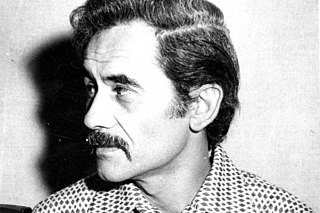 2
José Ignacio Rucci was an Argentine politician and union leader, appointed general secretary of the CGT in 1970. Close to the Argentine president Juan Perón, and a chief representative of the...
2
José Ignacio Rucci was an Argentine politician and union leader, appointed general secretary of the CGT in 1970. Close to the Argentine president Juan Perón, and a chief representative of the...
Héctor José Cámpora
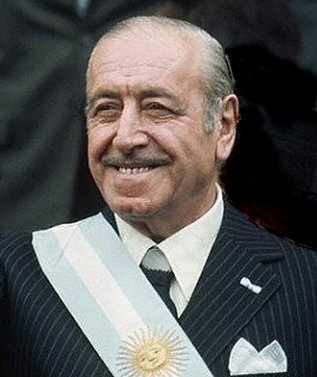 2
Héctor José Cámpora was an Argentine politician. A major figure of left-wing Peronism, Cámpora was briefly Argentine president from 25 May to 13 July 1973 and subsequently arranged for Juan Perón to...
2
Héctor José Cámpora was an Argentine politician. A major figure of left-wing Peronism, Cámpora was briefly Argentine president from 25 May to 13 July 1973 and subsequently arranged for Juan Perón to...
Justo de Santa María de Oro
 2
Justo de Santa María de Oro y Albarracín was an Argentine statesman and bishop. He was an influential representative in the Congress of Tucumán, which on 9 July 1816, declared the Independence of...
2
Justo de Santa María de Oro y Albarracín was an Argentine statesman and bishop. He was an influential representative in the Congress of Tucumán, which on 9 July 1816, declared the Independence of...
Álvar Núñez Cabeza de Vaca
 2
Álvar Núñez Cabeza de Vaca was a Spanish explorer of the New World, and one of four survivors of the 1527 Narváez expedition. During eight years of traveling across what is now the US Southwest, he...
2
Álvar Núñez Cabeza de Vaca was a Spanish explorer of the New World, and one of four survivors of the 1527 Narváez expedition. During eight years of traveling across what is now the US Southwest, he...
Marcelo Torcuato de Alvear
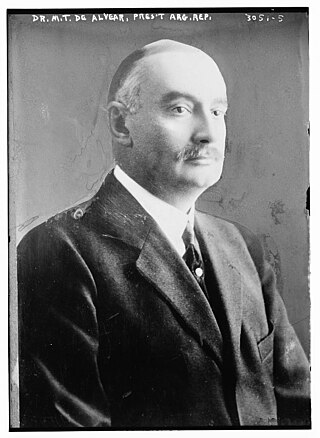 2
Máximo Marcelo Torcuato de Alvear Pacheco, was an Argentine lawyer and politician, who served as president of Argentina between from 1922 to 1928.
2
Máximo Marcelo Torcuato de Alvear Pacheco, was an Argentine lawyer and politician, who served as president of Argentina between from 1922 to 1928.
Bernardino Rivadavia
 2
Bernardino de la Trinidad González Rivadavia was the first President of Argentina, then called the United Provinces of the Río de la Plata, from February 8, 1826 to June 27, 1827.
2
Bernardino de la Trinidad González Rivadavia was the first President of Argentina, then called the United Provinces of the Río de la Plata, from February 8, 1826 to June 27, 1827.
Elizardo Aquino
 2
José Elizardo Aquino Jara was a Paraguayan general who was considered a hero of the War of the Triple Alliance. He was one of the first senior Paraguayan military leaders to die in combat. Aquino was...
2
José Elizardo Aquino Jara was a Paraguayan general who was considered a hero of the War of the Triple Alliance. He was one of the first senior Paraguayan military leaders to die in combat. Aquino was...
Félix Paiva
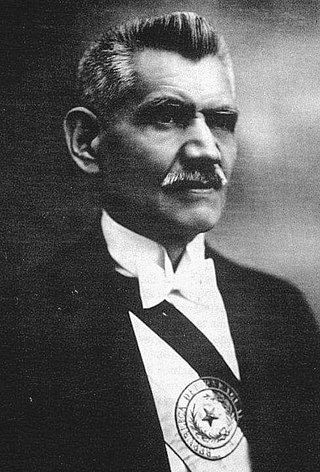 2
Félix Paiva was a Paraguayan politician from the Liberal Party.
2
Félix Paiva was a Paraguayan politician from the Liberal Party.
Felipe Molas López
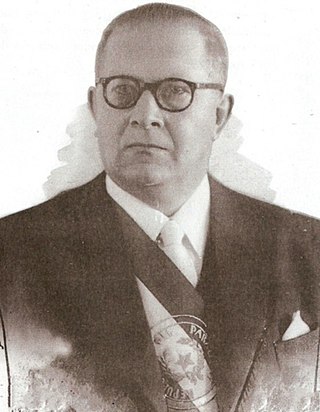 2
Felipe Benigno Molas López was 39th President of Paraguay from February 27, 1949 – September 10, 1949, when he resigned.
2
Felipe Benigno Molas López was 39th President of Paraguay from February 27, 1949 – September 10, 1949, when he resigned.
Fulgencio R. Moreno
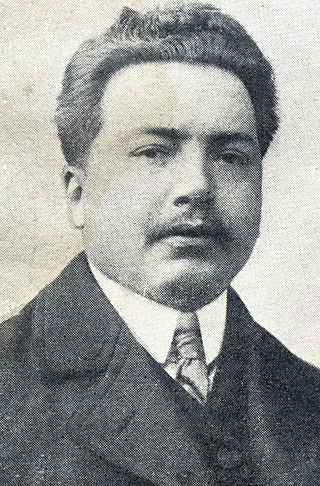 2
Fulgencio R. Moreno was a Paraguayan journalist, financial expert, statesman and one of the most serious researchers of the Paraguayan history.
2
Fulgencio R. Moreno was a Paraguayan journalist, financial expert, statesman and one of the most serious researchers of the Paraguayan history.
Tiradentes
 2
Joaquim José da Silva Xavier, known as Tiradentes, was a leading member of the colonial Brazilian revolutionary movement known as Inconfidência Mineira, whose aim was full independence from...
2
Joaquim José da Silva Xavier, known as Tiradentes, was a leading member of the colonial Brazilian revolutionary movement known as Inconfidência Mineira, whose aim was full independence from...
Oswaldo Cruz
 2
Oswaldo Gonçalves Cruz, was a Brazilian physician, pioneer bacteriologist, epidemiologist and public health officer and the founder of the Oswaldo Cruz Institute.
2
Oswaldo Gonçalves Cruz, was a Brazilian physician, pioneer bacteriologist, epidemiologist and public health officer and the founder of the Oswaldo Cruz Institute.
Manuel Gondra
 2
Manuel Gondra Pereira was the 21st President of Paraguay who served from 25 November 1910 to 11 January 1911 and again from 15 August 1920 to 31 October 1921. Born in Buenos Aires, he was also an...
2
Manuel Gondra Pereira was the 21st President of Paraguay who served from 25 November 1910 to 11 January 1911 and again from 15 August 1920 to 31 October 1921. Born in Buenos Aires, he was also an...
Fernando de la Mora (politician)
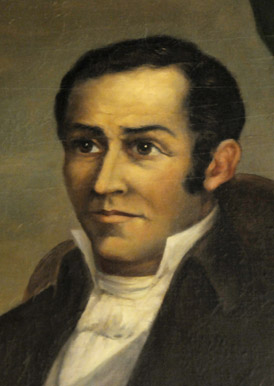 2
Fernando de la Mora was one of the founding fathers of Paraguay, and was an early leader of the country between 1811 and 1813, but soon lost his power and died imprisoned. The Paraguayan city...
2
Fernando de la Mora was one of the founding fathers of Paraguay, and was an early leader of the country between 1811 and 1813, but soon lost his power and died imprisoned. The Paraguayan city...
Eliza Lynch
 2
Eliza Alice Lynch was the Irish mistress-wife of Francisco Solano López, president of Paraguay.
2
Eliza Alice Lynch was the Irish mistress-wife of Francisco Solano López, president of Paraguay.
Francisco Acuña de Figueroa
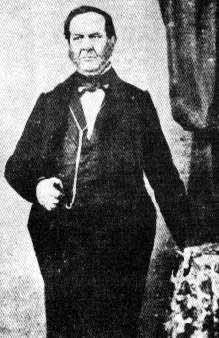 2
Francisco Esteban Acuña de Figueroa was a Uruguayan poet and writer. He was born in Montevideo, on September 3, 1791 and died on October 6, 1862. He was the son of the Treasurer of the Royal...
2
Francisco Esteban Acuña de Figueroa was a Uruguayan poet and writer. He was born in Montevideo, on September 3, 1791 and died on October 6, 1862. He was the son of the Treasurer of the Royal...
Augusto Roa Bastos
 2
Augusto Roa Bastos was a Paraguayan novelist and short story writer. As a teenager he fought in the Chaco War between Paraguay and Bolivia, and he later worked as a journalist, screenwriter and...
2
Augusto Roa Bastos was a Paraguayan novelist and short story writer. As a teenager he fought in the Chaco War between Paraguay and Bolivia, and he later worked as a journalist, screenwriter and...
Eduardo Víctor Haedo
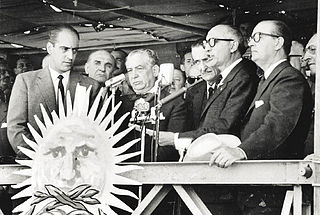 2
Eduardo Víctor Haedo was a Uruguayan political figure.
2
Eduardo Víctor Haedo was a Uruguayan political figure.
José Napoleón Duarte
 2
José Napoleón Duarte Fuentes was a Salvadoran politician who served as President of El Salvador from 1 June 1984 to 1 June 1989. He was mayor of San Salvador before running for president in 1972. He...
2
José Napoleón Duarte Fuentes was a Salvadoran politician who served as President of El Salvador from 1 June 1984 to 1 June 1989. He was mayor of San Salvador before running for president in 1972. He...
Emiliano R. Fernández
 2
Emiliano Fernández Rivarola was a Paraguayan poet, musician, and soldier. He is the author of more than 2,000 poems and participated in the Chaco War as an infantryman.
2
Emiliano Fernández Rivarola was a Paraguayan poet, musician, and soldier. He is the author of more than 2,000 poems and participated in the Chaco War as an infantryman.
Francis of Assisi
 2
Giovanni di Pietro di Bernardone, known as Francis of Assisi, was an Italian mystic, poet and Catholic friar who founded the religious order of the Franciscans. He was inspired to lead a Christian...
2
Giovanni di Pietro di Bernardone, known as Francis of Assisi, was an Italian mystic, poet and Catholic friar who founded the religious order of the Franciscans. He was inspired to lead a Christian...
Toribio Pacheco y Rivero
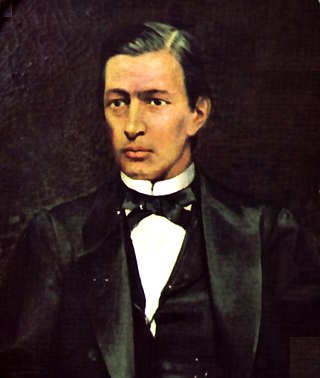 2
Toribio Pacheco y Rivero fue un jurista, diplomático, político y periodista peruano. Estuvo al frente de la Cancillería peruana en dos ocasiones: primero como Ministro de Relaciones Exteriores en...
2
Toribio Pacheco y Rivero fue un jurista, diplomático, político y periodista peruano. Estuvo al frente de la Cancillería peruana en dos ocasiones: primero como Ministro de Relaciones Exteriores en...